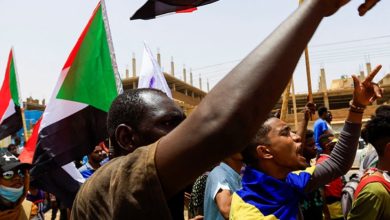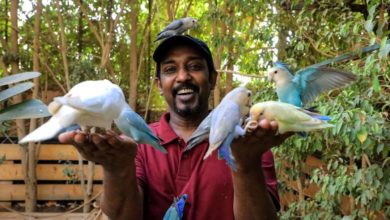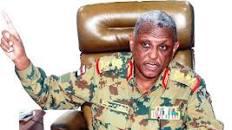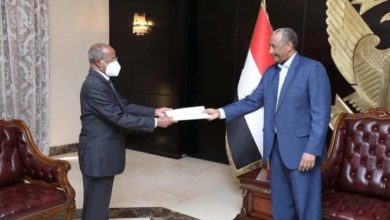Sudan: Hundreds of Protesters Detained, Mistreated
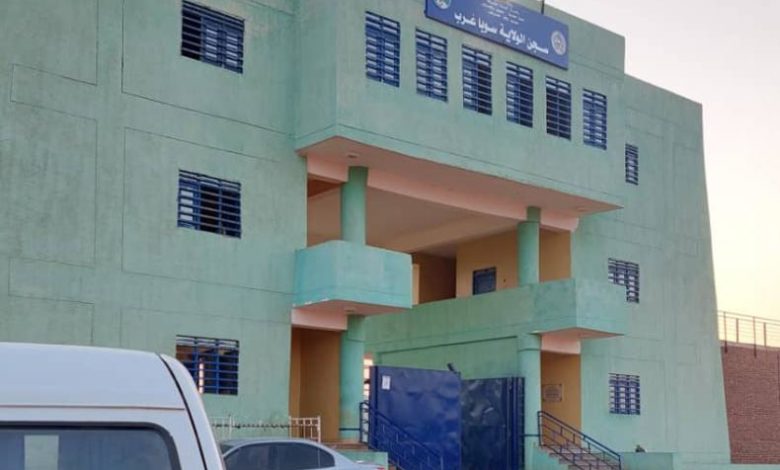
press/slma
End Protester Arrests; Free Detainees; Lift State of Emergency
Main entrance of Soba prison in Khartoum, Sudan where scores of individuals have been detained in connection to the protests following the military coup.
Main entrance of Soba prison in Khartoum, Sudan where scores of individuals have been detained in connection to the protests following the military coup. © 2022 Private
(Nairobi) – Sudan’s security forces have unlawfully detained hundreds of protesters since December 2021 and forcibly disappeared scores as part of its broader clampdown on opposition to the October 25 military coup, Human Rights Watch said today.
Security forces have beaten and otherwise ill-treated detained protesters, including stripping child detainees naked and threatening sexual violence against women. Sudanese authorities should release all those unlawfully detained, including those forcibly disappeared, while Sudan’s international partners should impose targeted individual sanctions on those responsible for the repression.
“The ruthless and brutal targeting of protesters is an attempt to instill fear, and has largely evaded international scrutiny,” said Mohamed Osman, Sudan researcher at Human Rights Watch. “For months, security forces have abused and illegally detained hundreds of people, including children, who express their opposition to military rule.”
On October 25, Sudan’s military chief, Lt. Gen. Abdel Fattah al-Burhan, effectively led a military coup against Sudan’s transitional government and declared a state of emergency. On December 26, he issued an emergency order granting security forces immunity and restored arrest powers to the General Intelligence Service (GIS), which has a track record of serious abuses. The emergency order overturned a decision by the transitional government to deny the agency arrest powers. Since Burhan restored the agency’s arrest powers, arbitrary arrests of protesters have spiked. The authorities abuse their emergency powers to carry out unlawful detentions, including incommunicado detentions, Human Rights Watch found.
Between February and April 2022 Human Rights Watch interviewed 25 people, 8 men and 17 women, including 8 former detainees, and family members of 13 detainees from Khartoum, Madani in Central Sudan, Port Sudan in the East, and El-Fashir in Darfur. Human Rights Watch also interviewed four lawyers involved in protecting protesters, two from the Emergency Lawyers Group, an informal group that has provided legal aid and advocates for those detained since the coup.
In early March, the United Nations’ Joint Human Rights Office in Sudan reported that more than 1,000 people were arrested between October 25 and March 3, including 148 children. The security forces have targeted people who are active or perceived to be active in the protest movement, Human Rights Watch found. Some were arrested during or in the immediate aftermath of demonstrations, and others were grabbed off the streets, or from their cars or homes.
Various sections of the security forces, including anti-riot police, Central Reserve Police (CRP), and military units from the Sudan Armed Forces (SAF), along with unidentified plainclothes agents, also have carried out arrests.
Security forces’ alleged violence against protesters included sexual abuse and rape threats. The UN special representative of the secretary general in Sudan reported that as of March 22, 16 women had reported being raped during protests in Khartoum.
Security forces have also ill-treated children including allegedly stripping them naked and partially shaving their heads. Families interviewed said they had been intimidated into dropping possible complaints against the security forces. The mother of a 16-year-old in Madani said that she found her son at a police station after he attended a protest on December 13: “I saw my son bleeding and badly beaten. He was topless. When I requested that my son be medically examined, the police told me: ‘We will release your son without charges, but you will not sue us.’”
The security forces generally detain protesters in police facilities or undisclosed locations before transferring them to prison but without bringing them before a court or a prosecutor, Human Rights Watch found.
Four detainees held for between two and four weeks in Soba and Omdurman prisons in January and February said they were denied family visits and access to lawyers. Two lawyers working on detainee cases said that authorities with oversight responsibilities for detention, including the office of the attorney-general, often deny knowledge of people detained, or send families to other institutions for information. Refusing to acknowledge a person’s detention or to disclose their whereabouts in custody can constitute an enforced disappearance, a crime under international law.
A lawyer and two former detainees interviewed said that in Khartoum, orders to detain someone, extend their detention, or release them appear to be managed through the state joint security committee, which includes representatives from all security forces and is headed by Khartoum’s acting state governor.
On April 25, a judge refused to sanction the continued detention of 19 members and staff from the ‘Dismantling Committee,’ who had yet to appear before a court despite being detained since February on charges of breach of trust, a criminal offense punishable by death among other penalties. The committee was established under the transitional government to track corruption and embezzlement by the former regime. Five of the 19 had previously been arrested in the immediate aftermath of the coup but were later released. According to a defense lawyer as of April 27, all 19 have been released on bail.
The United Nations’ Human Rights Council’s designated expert on Sudan visited the country on February 21, and in and around his visit, the authorities released on bail 115 people in Khartoum charged with creating a public nuisance. After his visit, arbitrary arrests resumed. A lawyer told Human Rights Watch that security forces detained around 100 men between March and April and moved some of them to other prisons in and outside Khartoum. On April 22, authorities released 25 detainees from Soba prison in Khartoum.
Sudan’s partners should press the military to end the arrests, allow independent monitors access to detention sites, and repeal the abusive emergency powers being used to justify these violations, Human Rights Watch said. Sudan’s regional and international partners should coordinate their response to ensure that those most responsible for the widespread violations since the coup are held to account, including by imposing individual targeted sanctions.
“This organized campaign of unlawful detentions designed to stifle the resistance movement won’t stop without concerted, coordinated pressure,” Osman said. “The regional and international communities should not lose sight of the protesters’ demands for a civilian, rights-abiding rule and should roll out concrete measures to hold to account those leading the repression.”
Beatings, Threats of Sexual Violence
Police, including anti-riot police and Central Reserve Police (CRP), as well as plainclothes officials and other military units, have badly abused protesters when detaining them at demonstrations, including beating and kicking them, and on at least some occasions, committing sexual violence.
On February 28, after dispersing protests near the Presidential Palace in Khartoum, anti-riot police and Central Reserve Police members detained a 32-year-old protester and beat him with gun butts, batons, and iron rods before stripping him fully naked in the street. “They were beating me everywhere, including on my head. I couldn’t see or feel anymore.” The police eventually left him, and a passerby drove him to a hospital.
Following a protest on January 24, a 25-year-old said unidentified security forces apprehended him and two others in the street. They blindfolded and forced them into a pickup truck, while punching and kicking them. The security forces took the three to an undisclosed location for a few hours, briefly interrogated them, searched their phones, photographed them, then transferred them to Soba prison in Khartoum.
That same day, regular police and CRP officers beat and sexually assault a 29-year-old activist as she and two friends fled police who were violently dispersing a protest in Khartoum. Police forces attacked the car she was riding in, fired a teargas canister into the car, then pulled her and her friends out and looted their belongings:
One police officer reached in, opened the lock, and pulled me out, and started beating me. Another was shouting “rape her” and using horrible expressions. I pulled myself out and started running. The one saying rape her, I heard him saying, “shoot her.” I heard him pulling his gun, and so I stopped. Another guy in front of me jumped on me, and with all his force, pushed me to the ground and started beating me. Then, I fainted.
She said that three officers proceeded to assault her: “I woke up as they were putting me into a [large] police car. I found myself on the ground of the car. There were three of them, one with police uniform, and two with abuteera [CRP[ uniform. They were taking off my clothes, including my pants, I saw one of them taking off his trousers, they were beating me.” The attack was halted by an official approaching the car.
On March 23, security forces violently arrested an 18-year-old student at her home, blindfolded her, and drove to an unknown location, where members of the security forces then beat and threatened her with sexual assault:
First, the forces took me from my house to a remote area. There were some cells surrounded by trees. One of the individuals who took me started touching my body, but I pushed him away. Six of them surrounded me and started beating me with their hands and sticks. One of them told me: I will rape you, kill you, and throw your body into the river. They kept asking me information about active members in the movement.
Arbitrary, Incommunicado Detentions by the Central Investigation Department (CID)
In Khartoum, the security forces have generally transported protesters picked up off the streets or at their homes to two Criminal Investigation Department (CID) facilities, one in Khartoum and the other one in Bahri. The agency, also known as the Federal Investigation Police, is a police branch that specializes in investigating major crimes.
Families and lawyers are regularly denied access to protesters detained at these facilities. Human Rights Watch spoke to families of detainees who had been held there for up to two weeks without access to relatives or lawyers.
The 18-year-old student was initially held at CID offices in Bahri, where she was interrogated and pressured into becoming an informant. She was later transferred to the CID office in Khartoum. Her family said they went to the Bahri office when she was being held there, but the police denied she was there. She was released on March 27, but told Human Rights Watch that for days after her release, armed people continued to watch her family’s house and to follow her in the streets.
A 35-year-old man was detained on March 14 as he headed with a friend to a protest in Khartoum. His sister said his family inquired at the CID facility in Khartoum, but the police denied any knowledge of her brother’s whereabouts. After four days, using personal contacts, her family located her brother and his friend at the CID facility.
On January 14, seven people were arrested in connection with the killing of a CRP commander at a protest the day before. Four have since been released but Mohamed Adam, 17, Ahmed al-Fatih (“al-Nannah”), and Mohamed el-Fatih, remain in detention.
A lawyer following the case said that unidentified police picked up Adam, known as Tupac, as he left a hospital where he had been receiving medical treatment for an injury sustained at a protest. For eight days, his family and lawyers were unable to locate him. On January 22, hearing that he might be detained at the CID office in Khartoum, his relatives went there. The CID denied they were holding him, but his relatives and two lawyers said they saw him being put in a vehicle and driven away on the same day. A CID officer acknowledged to them that he was being transferred to their offices in Bahri.
The Emergency Lawyers Group reported that the two other detainees were also held at the CID premises. The three were later transferred to Kober federal prison in Khartoum, where they remain.
Under Sudanese law, prosecutors and judges have a responsibility to provide oversight for arrests and detention sites, including both prisons and police stations. However, one lawyer and family members of two detainees said that prosecutors had denied knowledge of the detainees’ whereabouts or said that they were not authorized to disclose information on detainees or their whereabouts, citing the exceptional measures under the state of emergency.
The absence of adequate prosecutorial and judicial oversight, as required by law, increases the risk of arbitrary arrests and enforced disappearances, Human Rights Watch said.
A member of the Emergency Lawyers Group said that the various security forces involved in the arrests makes tracking or identifying the detaining authority harder: “With no cooperation from authorities, this makes our job harder, creates more anguish for families, and indeed shields perpetrators from responsibilities.”
Arbitrary, Incommunicado Detention; GIS Authority
Despite the process mandated under Sudanese law, security authorities transfer detainees to prisons without bringing them before a prosecutor, judge, or court. Prison authorities also deny detainees access to their families and legal counsel. Three former detainees from Soba prison and one woman from Omdurman’s women’s prison said that they were denied visits while they were in prison for between two and four weeks.
Male detainees in Soba prison said that all those detained in connection with the protests were kept in three cells, two large and one small. Two detainees said that at least two children were in their cell.
Former detainees, lawyers, and relatives said that prison officials repeatedly said that they did not have control over the custody of those held in connection with the protests, that they were only “hosts,” with some explicitly stating that the detainees were under General Intelligence Service custody.
On February 7, a 19-year-old woman was detained at a protest and taken to Omdurman women’s prison. Her mother tried to reach her there: “We went to GIS, police, and the office of attorney general – they just sent us around. A police contact said to me, ‘I can’t help. Those detainees are [the] responsibility of GIS. They say your daughter is a troublemaker organizing protests and this is why they are detaining her and others there.’” The 19-year-old was held without access to her relatives or legal counsel for two weeks.
Prison officials told detainees that they needed to get GIS permission for basic services. A 31-year-old detainee arrested at home and taken to Soba prison on February 7 said, “Whenever we asked to meet a doctor or contact our families, they always said, ‘This needs to be approved by that apparatus [authority]’…. At first some of us could contact our families to inform them about our whereabouts, but after two or three days a prison official came to us and said that the security apparatus had instructed them not to allow prisoners to contact their families.”
Lawyers said that prison officials refused the lawyers’ repeated requests to meet with clients detained in connection with the protests. Prison officials would only allow monitored written communications, an offer the lawyers rejected.
Abuses, Ill-Treatment, and Torture of Children
Children who took part in the protests have not been spared ill-treatment or arbitrary detention.
The parents of four detained boys said that the police did not inform them of their children’s whereabouts.
The mother of Mohamed Adam, the 17-year-old detained on January 17 in connection with the killing of a police commander, was only allowed to visit him on February 8. A lawyer accompanying her said Adam described being tortured and that he could see marks consistent with torture and ill-treatment on Adam’s body: “He said to us he was tortured by hammering nails into his leg, police beating his injured leg, and he was tied and held upside down.… I also saw cigarette burns on his skin.”
Adam told his lawyers that he had appeared before a judge, but the judge ignored his complaint about his mistreatment.
On February 24, police detained a 16-year-old boy in Omdurman alongside two other children while dispersing a protest. The boy’s mother said that her son had described being detained by a mix of security forces, including CRP, regular police, anti-riot police, SAF, and other men in civilian clothes, who had beaten the boys with fists, gun butts, and batons, and that some members of the force cut the boys clothes off with a knife, stripping them naked.
His mother found him and the other two children at the Omdurman central police station that evening. She said they had marks from the beatings and were wearing oversized jallabiyas [a traditional item of clothing that runs from the neck to the ankle] and were almost naked underneath. “When I complained about this abusive treatment, a police officer there told me: ‘Well, they didn’t arrest your son from his house for doing nothing, he was protesting.’”
In an April report, Redress, the Emergency Lawyers Group, and the People’s Legal Aid Center (PLACE) – a local legal aid group, said that children are generally not charged with criminal offenses but released on guarantees that they won’t take part in protests again. Parents of three children said that the police pressured them into dropping complaints against them for ill-treatment.
A lawyer in Port Sudan said that police in Port Sudan, the capital of Red Sea state, arrested 10 children and held them for hours. The father of a 14-year-old boy who was among them found his son at a police station with his head partially shaved: “It was humiliating and degrading … he told me he was beaten by the police upon arrest before they threatened to kill him if he joined protests again.” The father said they released his son on bail, but when he asked the police for a form allowing them to get a medical examination for his injuries, the police hinted that such a step would have consequences for his son.
These detentions violate international protections for children, in particular as provided for in the African Charter on the Rights and Welfare of the Child and the UN Convention on the Rights of the Child (CRC), to which Sudan is a party. Both treaties prohibit torture as well as any humiliating or degrading treatment of children and require that their best interests be paramount in all decisions and actions relating to child suspects or detainees.
Article 37 of the CRC provides that “The arrest, detention or imprisonment of a child shall be in conformity with the law and shall be used only as a measure of last resort and for the shortest appropriate period of time.” Both treaties set out a series of safeguards for children in detention when it is absolutely necessary to arrest them, none of which have been observed by Sudan in their treatment of child protestors.
Impact of Arrests
Beyond the inherent loss of liberty, the impact of arbitrary arrests on the lives of the detainees and their relatives has been profound, Human Rights Watch found.
Families bear the burden of providing for their loved ones in detention at a time when the economy is on the brink of collapse and inflation rampant, with price increases of essential commodities such as bread and fuel. “In Soba prison – food quality was bad, same as medical care,” said a 37-year-old detainee. “Our families had to take the burden of bringing food or provide money so we can buy food and other stuff from a private shop in the prison.”
A lawyer noted that many of the families had to undertake long trips to Soba prison, located on the outskirts of Khartoum, 28 kilometers from the center, to provide essentials that should be provided by the prison, including food, blankets, and medication.
A statement by the Emergency Lawyers Group on April 5 said that authorities have transferred some detainees from Soba prison to other prisons outside the capital, including in Port Sudan and White Nile state. The move, they said, makes detainees’ access to their lawyers and their families even more difficult.
Parents also worry about the impact on their children’s studies. The father of a 17-year-old detainee said that his son been admitted to a university, and now he worries he may lose his spot. A mother said her university-level daughter missed classes while in detention: “I asked the prison administration to provide us with a document confirming my daughter was in prison – because she also missed some university exams, but they refused to provide us with that.”
Parents also described the psychological impact of the arrests and ill-treatment of their children. “They ]security forces[ want to break our boys from joining the protests, and also want to generate fears in families for the fate of their children so they won’t allow them to protest,” said the mother of a 16-year-old boy.
The father of a 13-year-old boy said his son, who was detained for almost half a day to force the father to surrender, continues to have trouble sleeping. “It is troubling to see him this way, we are trying to find treatment for our son, and we can’t afford it, and there is no access to assistance from the government for what they have done.”
Recommendations
To Sudanese Authorities
Lift the State of Emergency and revoke the December 26 decree;
Release anyone unlawfully detained in connection with the protests;
Allow access for independent monitors to all detention facilities;
End incommunicado detentions and enforced disappearances;
Facilitate effective and independent investigations by inviting relevant experts from the African Commission on Human and People’s Rights (ACHPR) and United Nations – including the UN Working Group on Enforced or Involuntary Disappearances – to take part; and
Allow prosecutorial and judicial authorities to inspect detention sites and records of arrests and ensure respect for detainees’ well-being and due process rights.
To Sudan’s International and Regional Partners and the United Nations
Press the military to lift the state of emergency, allow access for independent monitors to all detention facilities, and stop abusing protesters;
Adopt targeted measures against leaders and commanders of security forces involved in unlawful detentions and enforced disappearances, including those in leadership positions of the Criminal Investigation Directorate (CID) and General Intelligence Service (GIS);
Provide ongoing support to the mandate of the UN independent expert on Sudan and call for invitations for relevant UN and ACHPR experts to visit Sudan; and
Support local groups in their human rights documentation work.
Source: Human Rights Watch


